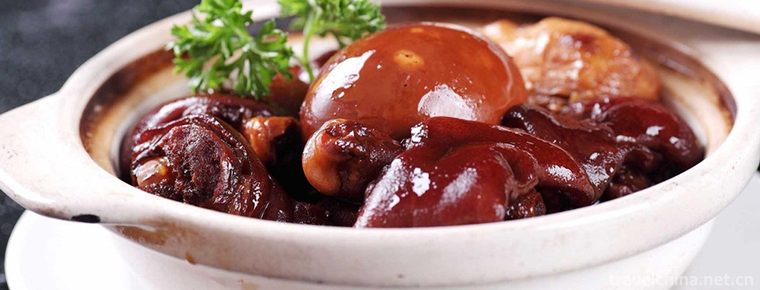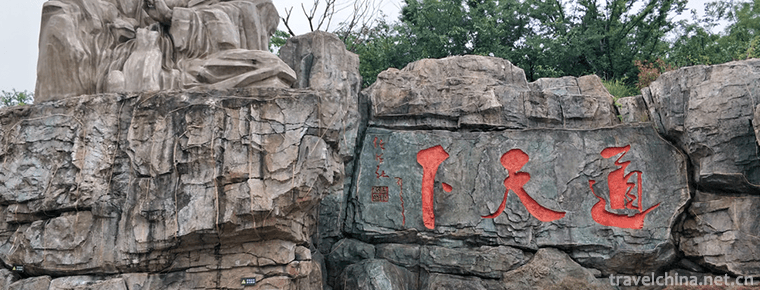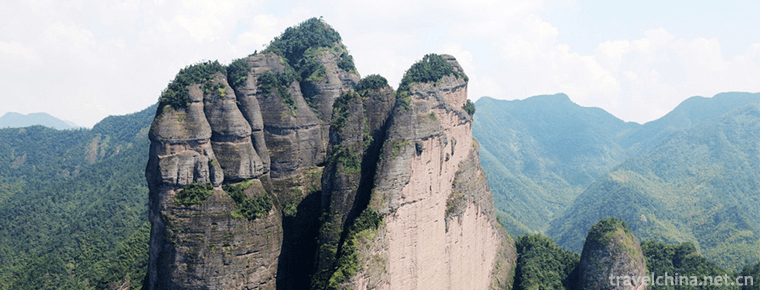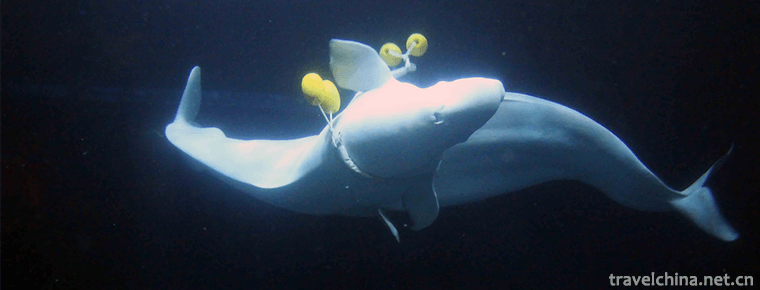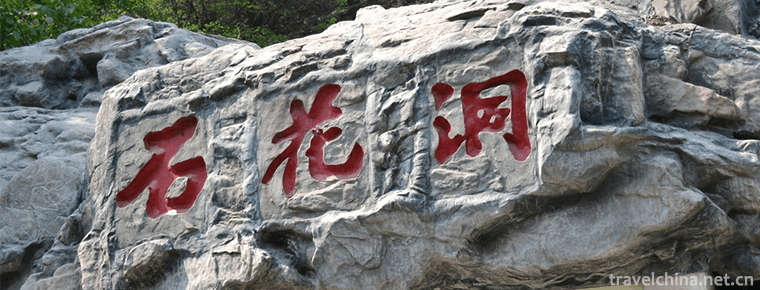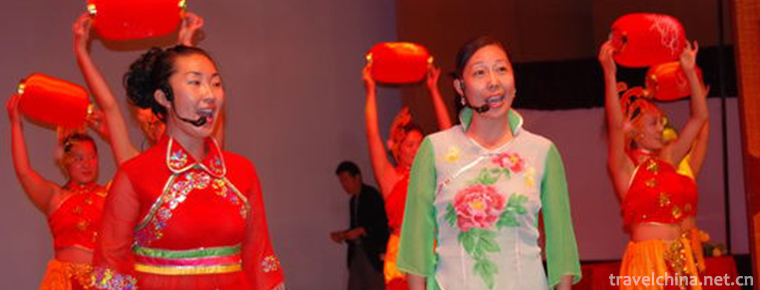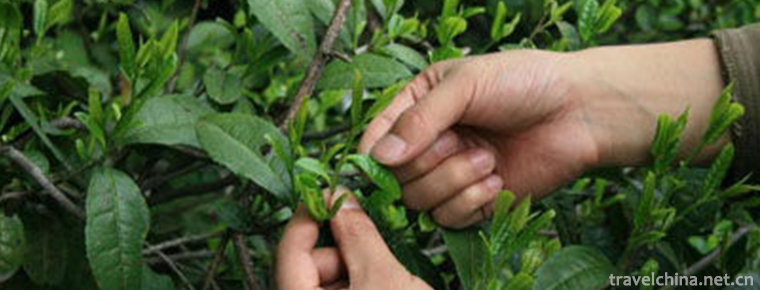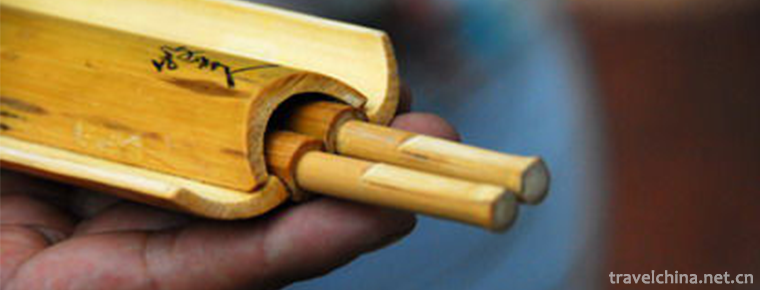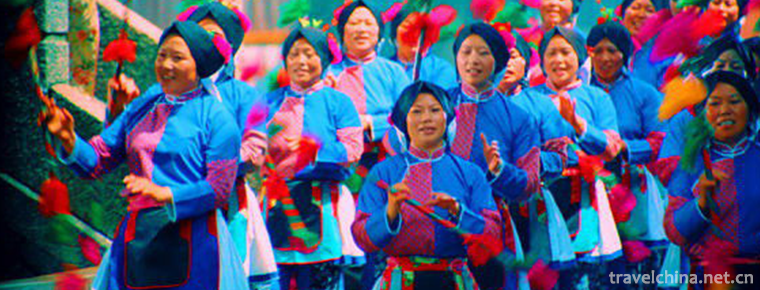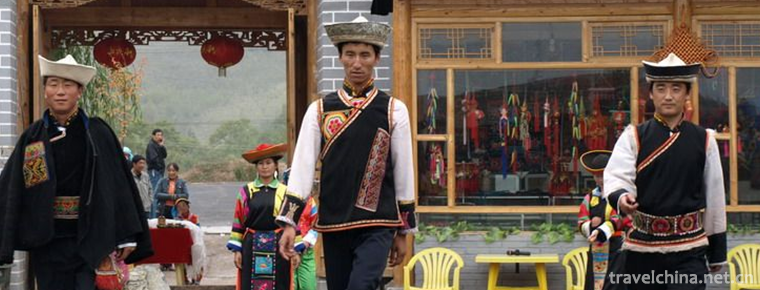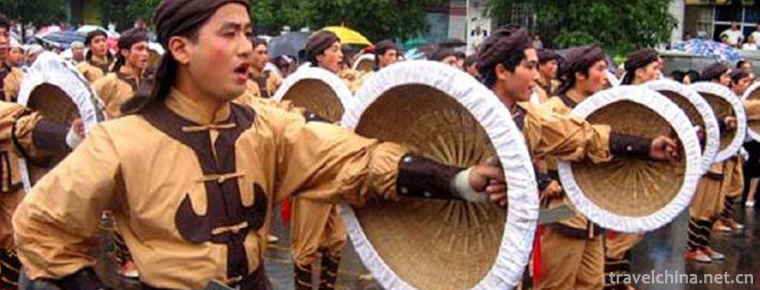Tianmu Lake
Tianmu Lake is located eight kilometers south of Liyang City, Changzhou. It is named Tianmu Lake because it belongs to the remnants of Tianmu Mountain. Tianmu Lake is a deep-water Lake (reservoir) with narrow east-west and long north-south. The water depth in the south is about 4-5 m and that in the north is about 10-14 M.
Around Tianmu Lake, there are many historical and cultural sites: Wu Meishan, named after Wu Zixu, a Chu man in the Spring and Autumn Period, Cai Yong Reading Platform, Taibai Tower, Baoen Zen Temple, the site of Longxing Temple in the Tang Dynasty, the first stone arch dam in the world, and so on.
Tianmu Lake area is rich in products, including "Shahe Guiming" green tea, "Oolong tea", "Pearl chestnut", "Guiyuan chestnut", "Fishhead in casserole" and so on.
Tianmu Lake is known as the "Pearl of the South of the Yangtze River" and "Green Wonderland". Tianmu Lake has an ecological protection area of 300 square kilometers. There are two large national reservoirs in the area, Shahe and Daxi. It is the first batch of eco-tourism demonstration zones in Jiangsu Province.
In 1957, Jiangsu water experts visited Liyang to study the local topography. It is found that there are continuous green mountains on both sides of the Shahe River in Yima Pingchuan. For example, in the lower reaches of the Shahe River, it should be a good thing that can block the water, use water to generate electricity, irrigate the fields, protect the drought and flood, and benefit the people. Therefore, the Shahe Reservoir has been built.
In 1992, in order to meet the needs of reform and opening up, Shahe Reservoir was transformed into Tianmu Lake.
geographical position
Tianmu Lake is located in the south of Liyang City, 8 kilometers away from the urban area. It is connected with Daibu Town in the east, Qiucun Town in Guangde County, Anhui Province in the south, Lingfan Town in Langxi County, and Shuzhu Town and Nandu Town in the West and Licheng Town in the north. Located in the center of the Yangtze River Delta.
topographic features
Tianmu Lake, located in Tianmu Lake Town, is part of Yili Mountains.
Lower elevation, larger relief, complex and diverse soil types, mostly red soil and yellow brown soil type, strong acidity, shallow tillage layer, lack of phosphorus and potassium, mostly yellow soil. It is a typical low mountain and hilly area.
climate
Tianmu Lake is a subtropical monsoon climate, dry, wet, cold and warm, four distinct seasons, abundant rainfall, frost-free period.
The annual average temperature is 17.5 C, of which 3.2 C in January and 31.1 C in July. The annual average precipitation is 1149.7 mm, including 42.2 mm in January and 154.mm in July. Sunshine time is 137.6 hours in January and 229 hours in July.
water level
The annual water level of Tianmu Lake is generally 20-21m. The water level of Tianmu Lake is greatly affected by precipitation. The fluctuation range of the lowest water level and the highest water level is 16-22 M. The highest water level of Tianmu Lake was 21.98m on July 1, 1999.
Water Quality
The Tianmu Lake area is in the second to third class water quality. Both transparency and pH value showed that the water quality of Tianmu Lake was in the class II-III water quality. In the whole year, 39.9% of dissolved oxygen is in the level of Class I water quality, 35.8% is in the level of Class II water quality, 20.8% is in the level of Class III water quality, and only 3.4% is below the level of Class III water quality. In the whole year, only 0.24% of TP is in the level of Class I water quality, 30.9% is in the level of Class II water quality, 51.4% is in the level of Class III water quality, and 17.5% is below the level of Class III water quality. Only 2.6% of TN is in the level of Class I water quality, 42.4% is in the level of Class II water quality, 38.9% is in the level of Class III water quality, and 15.6% is in the level of Class III water quality.
The water quality of Tianmu Lake is poor in spring and autumn, which is related to the fact that Tianmu Lake is a deep-water lake. In these two seasons, the convection between the upper and lower water bodies is fully mixed, and the water quality of the lake decreases.
Tianmu Lake Scenic Spots include Tianmu Lake Archway, Tianmu Lake Embankment, Huli Mountain Park, Yangshan Zoo, Comprehensive Recreation Center, Tianmu Lake Hotel, Jingbo Villa, Shuiyue Villa, etc.
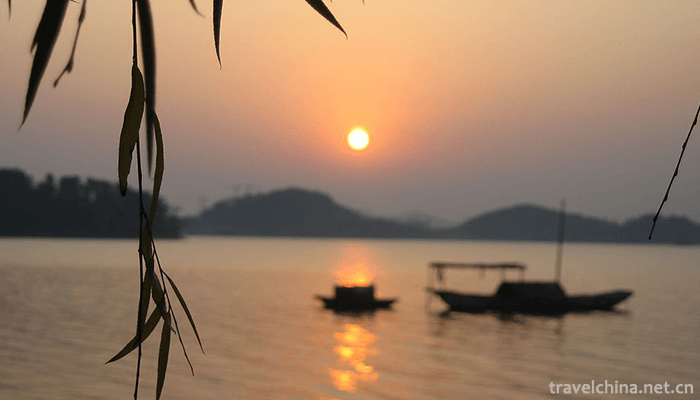
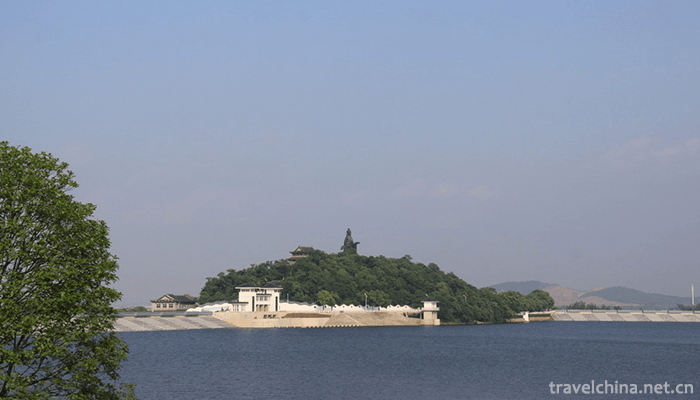
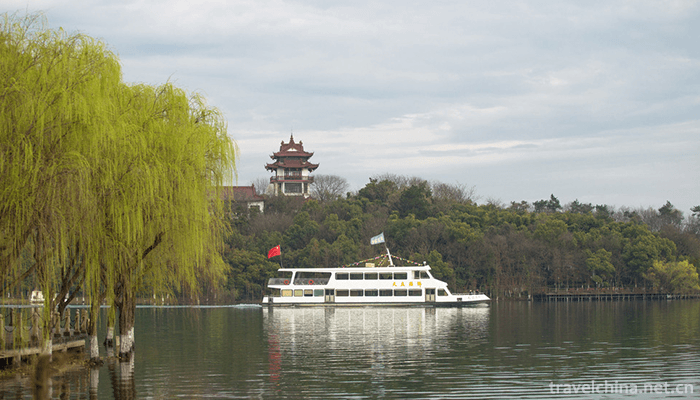
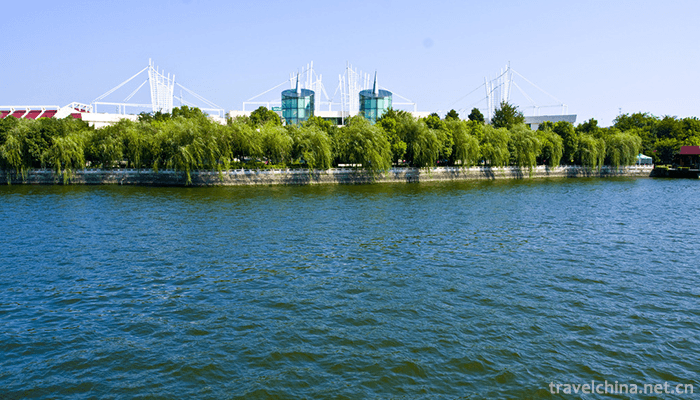
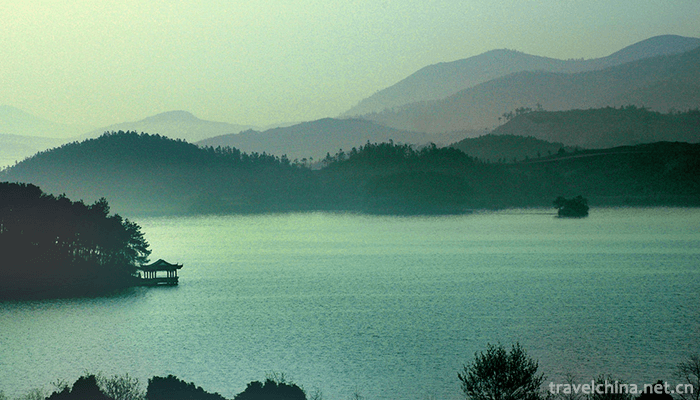
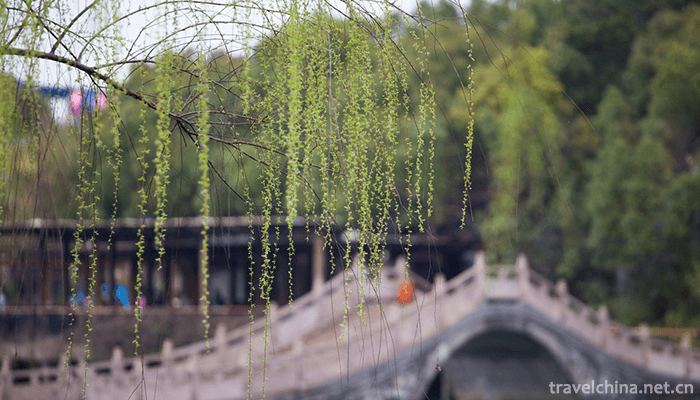
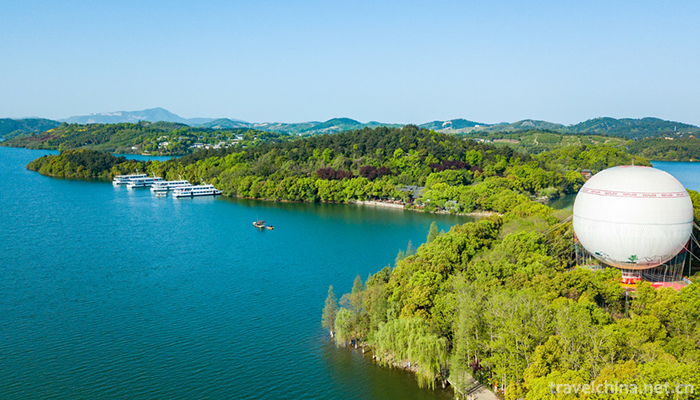
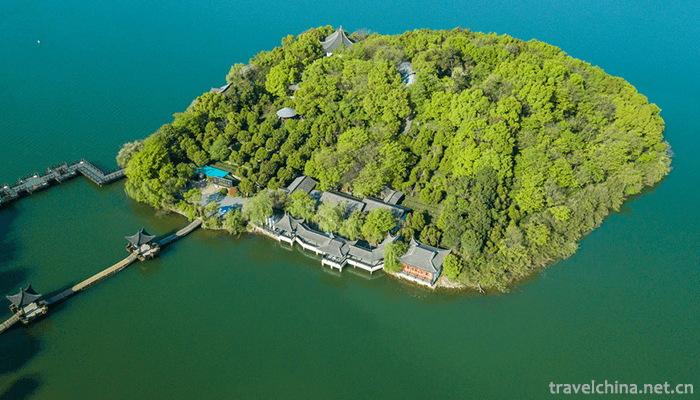
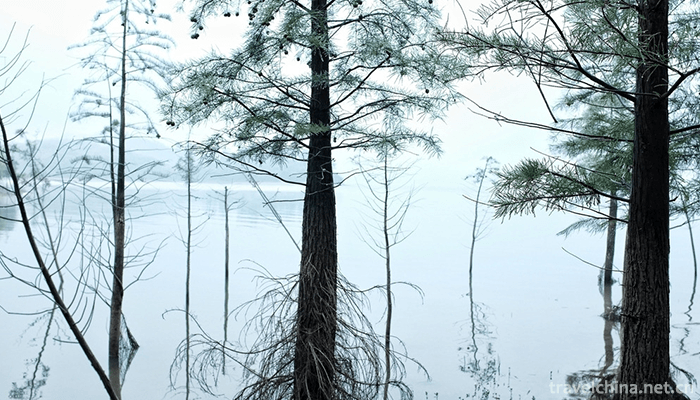
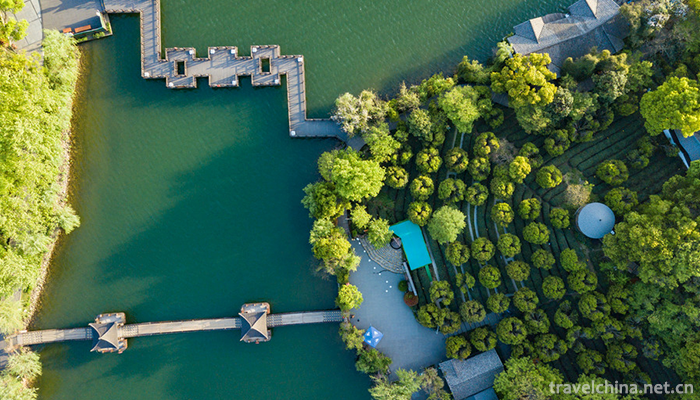

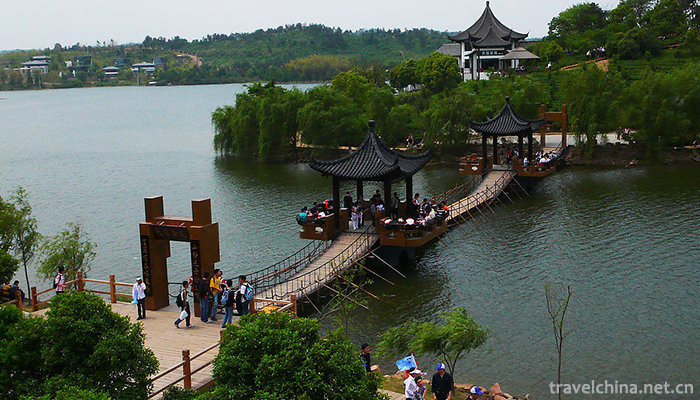
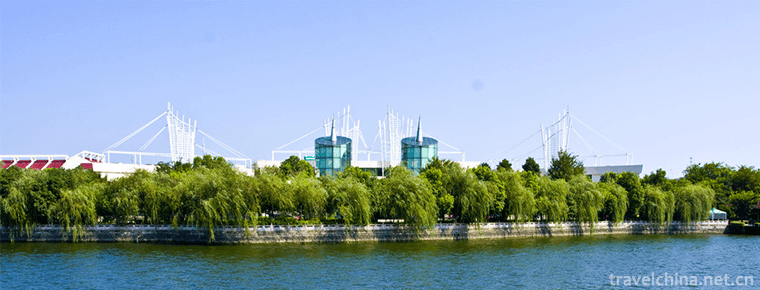
Tianmu Lake
-
Jiang Cudan Canton style pig leg
Except for those with internal fever, dry stool and weak spleen and stomach function, breast enlargement products can be used as a warm-up tonic in winter.
Views: 247 Time 2018-11-02 -
Mount Maoshan
Maoshan is located in Jurong City, Zhenjiang City, Jiangsu Province. It is about 10 kilometers long from north to south, 5 kilometers wide from east to west, and covers an area of more than 50 square
Views: 225 Time 2018-12-06 -
Jiang Lang Shan
Jianglangshan, formerly known as Yulangshan and Jinchunshan, is located in Shimen Town, Jiangshan City, Quzhou City, Zhejiang Province
Views: 221 Time 2018-12-07 -
Beijing Ocean Hall
Beijing Ocean Hall, located on the North Bank of Changhe River in Beijing Zoo, is adjacent to Beijing Exhibition Hall, Astronomical Museum and Capital Stadium in the south. It covers an area of 120,00
Views: 141 Time 2018-12-26 -
Shihuadong National Geological Park
Beijing Shihuadong National Geopark is located in Cheying Village, Nancheng Town, Hebei Province, Fangshan District, Beijing. It is a seven-storey karst cave 55 kilometers away from Beijing
Views: 153 Time 2019-02-08 -
Changli folk songs
Changli folk song is a kind of local folk ditty inherited from generation to generation by Changli people. The content of singing can be divided into four categories: labor chant, story and legend, lo
Views: 237 Time 2019-04-15 -
Green Tea Production Techniques
Green tea production technology is a national intangible cultural heritage. Luan Guapian is a special kind of green tea. Cucumber seed-like flake-shaped tea is made from local endemic varieties by wre
Views: 314 Time 2019-05-15 -
Performing and Making Skills of Qiang Flute
Qiang flute is an ancient single-reed gas singing instrument in China. It has a history of more than 2000 years. It is popular in the Qiang people's residence of Aba Tibetan Autonomous
Views: 181 Time 2019-06-10 -
Womens clothing in Yongzhishui Townshi Suzhou
The women's clothing in Yongzhishui Township, Suzhou, is an outstanding representative of the Han nationality's clothing. It is a typical and representative clothing of the working people in Wu area.
Views: 299 Time 2019-06-17 -
Tu Costume
Women usually wear embroidered small collar and long slant-skinned shirt. The sleeves are made of red, yellow, orange, blue, white, green and black seven-color cloth rings. They are bright and beautif
Views: 208 Time 2019-06-23 -
Yongxin Shield Dance
Shield dance, also known as men's group dance rattan dance, roll the shield, reflects the most primitive national cohesion, team spirit and fighting spirit. Shield dance is mainly spread in Longyuanko
Views: 169 Time 2019-07-14 -
Guangyuan secondary industry
In 2018, the total industrial added value of Guangyuan was 30.018 billion yuan, an increase of 9.4% over the previous year. The contribution rate of industry to economic growth is 44.3%, which drives economic growth by 3.7 percentage points.
Views: 352 Time 2020-12-15
